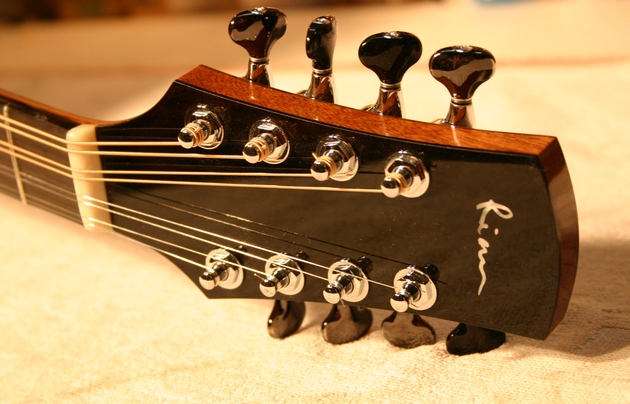Here's what I do.
I start with a rough nut, sized on its fitting surfaces, bevelled on the bottom, not shaped on top nor cut to length. The bottom of the nut is bevelled on the disk part of the disk/belt sander, with the table at the desired bevel. A plywood guide is bevelled on the edge using the same table setup as for the nut. The nut and guide now have identical bevels to match the headstock angle. The nut is placed against the end of the fretboard as a spacer, then the guide is clamped very snug up against the nut, like this.
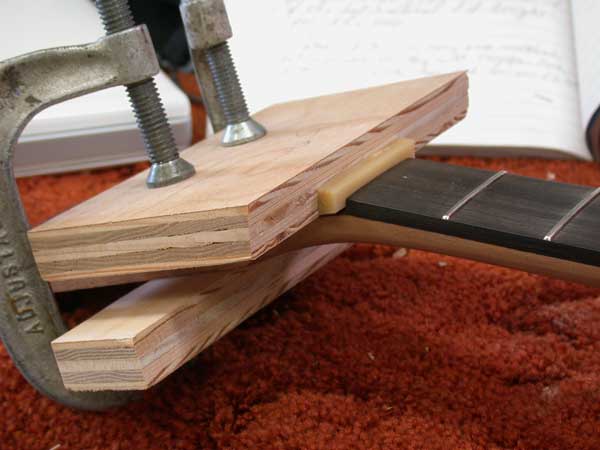
Remove the nut. I now have the guide's bevelled face coplanar with the tuner side of the nut. Using a small Japanese saw, or X-Acto saw, cut the end of the headstock overlay while pushing the saw up flat against the guide. Stop just shy of the neck wood.
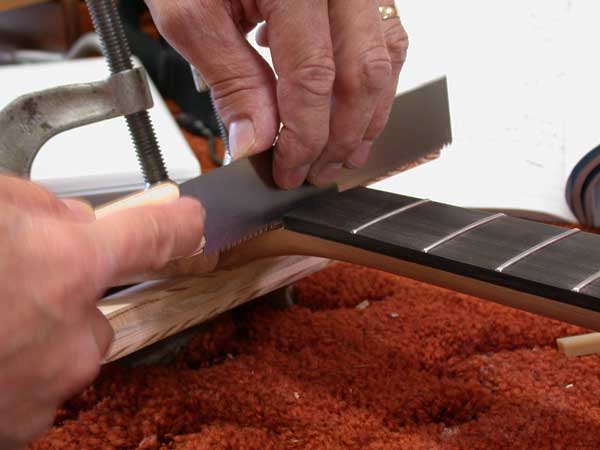
Break out the cutoff of the headstock and clean out the slot with a narrow chisel. Sometimes
I use an old nut with a piece of sandpaper glued to it.
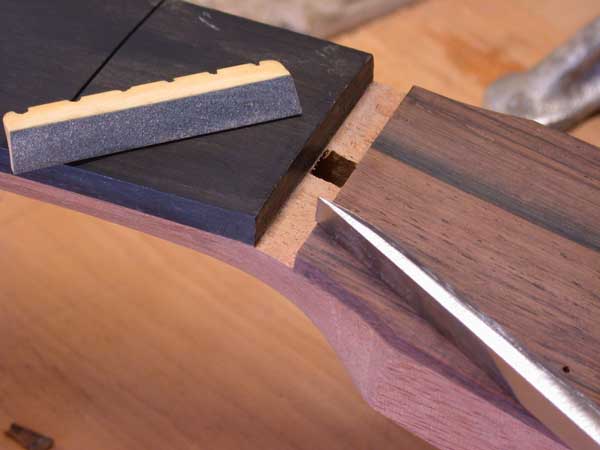
We now have a slot sized to the rough nut.
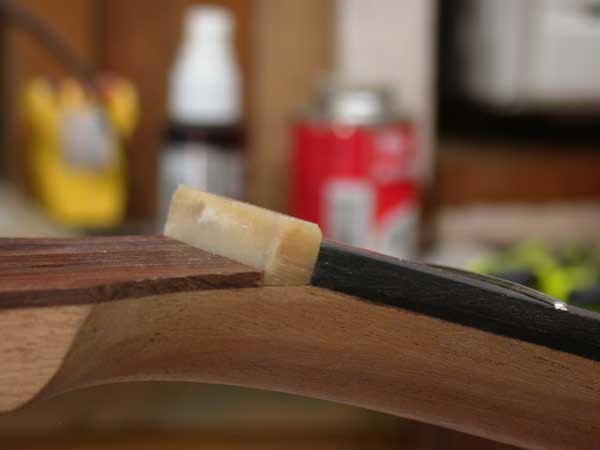
Shape and finish the top portion of the nut. This one still needs some material taken off the height.

